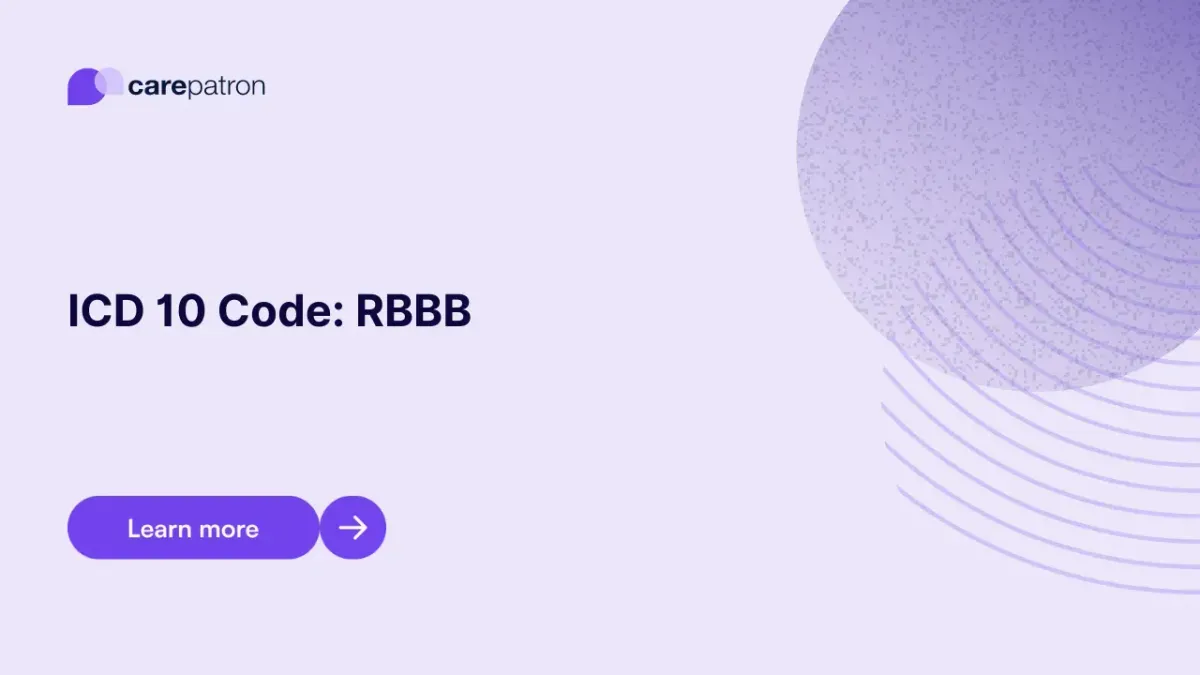
RBBB ICD-10-CM Codes | 2025
Learn the 2025 ICD-10-CM codes for right bundle branch block (RBBB), including billable codes, diagnosis guidelines, causes, symptoms, and treatments.
Use Code
Commonly asked questions
When a patient is diagnosed with a right bundle branch block confirmed by an electrocardiogram (ECG), you should use an RBBB ICD-10-CM code. Accurate documentation should reflect whether the block is unspecified (I45.10) or fits the criteria for other specified types (I45.19).
Yes, both I45.10 (unspecified right bundle branch block) and I45.19 (other right bundle branch block) are valid and billable ICD-10-CM diagnosis codes. When supported by appropriate documentation, they are accepted by Medicare, Medicaid, and commercial insurers.
Treatment for RBBB typically involves addressing the underlying cardiac condition, such as ischemia, heart failure, or structural abnormalities. Isolated RBBB without symptoms usually requires no treatment, but monitoring and further evaluation may be necessary in complex cases.
EHR and practice management software
Get started for free
*No credit card required
Free
$0/usd
Unlimited clients
Telehealth
1GB of storage
Client portal text
Automated billing and online payments
